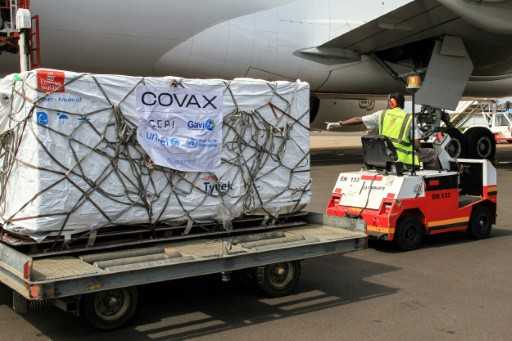Global players brainstorm to boost COVID vaccine output
08 March, 2021

Global players are gathering online from Monday to brainstorm methods to rapidly boost vaccine production and fight a still-virulent coronavirus that has hobbled the world for 14 months.
Offering impetus to the meeting is a warning out of the Geneva-based Globe Health Organization (Who also) that the pandemic will not end unless of course poor countries can keep up with accelerating mass vaccination campaigns in rich nations.
Meeting internet Monday and Tuesday will become partners of the Covax vaccine distribution initiative, led by the Gavi vaccine alliance and backed by simply research arm the Coalition for Epidemic Preparedness Innovations plus the WHO.
Authorities delegates, scientists and representatives of the pharmaceutical giants together with smaller drug manufacturers from developing countries may also participate.
Desire to is "to shine the mild on the gaps that people have currently in the supply chain, of reagents, of raw materials, of products that you need to try to make vaccines", WHO's chief scientist Soumya Swaminathan told a news conference on Friday.
The pharmaceutical industry aims to create 10 billion COVID-19 vaccine doses this season, which is double the 2019 manufacturing convenience of a myriad of vaccines.
Manufacturing these jabs needs not simply an unprecedented level of ingredients, but also items such as glass to get the vials and plastic-type material for their caps -- at the same time when global source chains have already been disrupted by the pandemic, Swaminathan explained.
"As a result the summit is very focusing on that upstream area, the gaps, how they could be filled and for answers to be found."
Such interventions "could make a difference for a while" even as WHO and others already are eyeing the longer-term span of the pandemic, she added.
Setting rivalries aside
Pressure from governments and community opinion has helped force the pharma organizations, who usually jockey for a good competitive advantage, into deals to create more vaccine doses.
Using its own vaccine development lagging, France's Sanofi will make both the Pfizer-BioNTech and the Johnson & Johnson versions.
Merck will also come out the J&J pictures, Switzerland's Novartis will make doses of the Pfizer-BioNTech and Curevac vaccine, while Germany's Bayer can be set to greatly help Curevac.
Such deals are "very welcome", Swaminathan said.
"We wish to see more of the happening and in extra parts of the world. We must explore the fill-and-finish capacity in Asia, in Africa and Latin America and use those services to improve supply."
Marie-Paule Kieny, research director at France's National Institute of Health insurance and Medical Exploration, noted that "there are numerous generic drug manufacturers who've a high record... and good manufacturing practices, which could also support in this technique".
But cooperation poses challenges over how to share or license the precious intellectual property pharmaceutical firms have invested heavily to create -- albeit quite often with significant state aid -- to allow them to at least recoup their costs.
Despite pressure from aid groups and the WHO, a proposal from India and Southern Africa at the World Trade Firm to temporarily suspend vaccine patents appears stalled.
Unequal race
Efforts in boosting vaccine development should support the worst-off nations -- who actually lack the cash to get direct from pharma corporations -- get their people immunized.
The ambitious Covax initiative is aiming to supply vaccines to dozens of countries in the first 100 days of 2021.
It hopes to distribute more than enough doses -- around 1.3 billion -- to vaccinate up to 27 percent of the population in the 92 poorest participating economies by the end of the year.
However the first Covax shots have only been distributed in the latest times, with around 20 million achieving 20 different countries. Wealthy countries, meanwhile, have been vaccinating since December.
With an increase of than 14 million considerably more doses to be delivered in a few days, "that is encouraging progress", said WHO chief Tedros Adhanom Ghebreyesus. "However the volume of doses staying distributed through Covax is still relatively small."
Covax will give enough shots for 2-3 percent of recipient countries' populations by June, "even while other countries produce rapid progress towards vaccinating their entire population next couple of months", he added.
Source: japantoday.com
